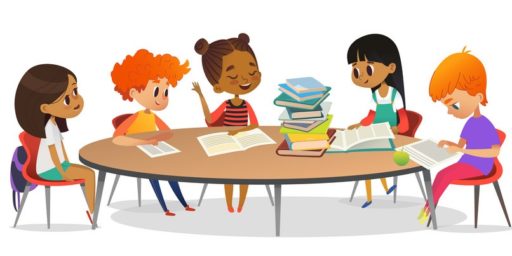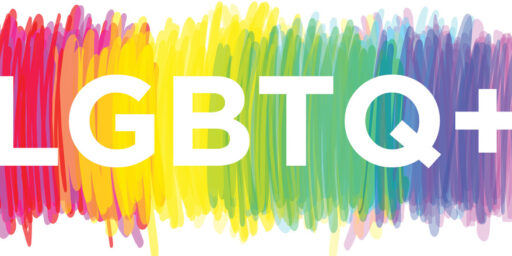School Supply Lists Growing Out of Control
Financially strapped schools are passing an increasing amount of ordinary costs on to parents.
Not shockingly, perhaps, as localities face tighter budgets, they’re seeking to pass on their burdens in the way of fees. But is this going to far?
When Emily Cooper headed off to first grade in Moody, Ala., last week, she was prepared with all the stuff on her elementary school’s must-bring list: two double rolls of paper towels, three packages of Clorox wipes, three boxes of baby wipes, two boxes of garbage bags, liquid soap, Kleenex and Ziplocs.
“The first time I saw it, my mouth hit the floor,” Emily’s mother, Kristin Cooper, said of the list, which also included perennials like glue sticks, scissors and crayons.
Schools across the country are beginning the new school year with shrinking budgets and outsize demands for basic supplies. And while many parents are wincing at picking up the bill, retailers are rushing to cash in by expanding the back-to-school category like never before.
Now some back-to-school aisles are almost becoming janitorial-supply destinations as multipacks of paper towels, cleaning spray and hand sanitizer are crammed alongside pens, notepads and backpacks.
[…]
State and local school financing, which make up almost all of public schools’ money, is falling because of budget-balancing efforts and lower property- and sales-tax revenue.
“Some of the things that have been historically provided by schools, we’re not able to provide at this point,” said Barbara A. Chester, president of the National Association of Elementary School Principals.
On the list for pre-kindergartners at McClendon Elementary in Nevada, Tex.: a package of cotton balls, two containers of facial tissue, rolls of paper towels, sheaves of manila and construction paper, and a package of paper sandwich bags.
Pre-kindergartners in the Joshua school district in Texas have to track down Dixie cups and paper plates, while students at New Central Elementary in Havana, Ill., and Mesa Middle School in Castle Rock, Colo., must come to class with a pack of printer paper. Wet Swiffer refills and plastic cutlery are among the requests from St. Joseph School in Seattle. And at Pauoa Elementary School in Honolulu, every student must show up with a four-pack of toilet paper.
Scott Lemieux passes along Natascha Chart’s snark “Because nothing says ‘superpower’ like when your public schools can’t afford toilet paper” and adds, “And, alas, there’s plenty more of this kind of news.”
Granting that we fund our military from federal dollars and schools mostly with local dollars, there does seem to be a disconnect here. It’s one thing to expect students to supply their own papers and crayons. But supplies to clean the floors?
Given that school attendance is mandatory, parents could presumably balk at buying this stuff. But, as the article notes, the teachers tend to be the ones picking up the slack.
Presumably, there’s some fat to be cut here. Swiffer is an awfully lavish way to clean a floor when money’s tight. And, hello: Printer paper? But kids need supplies to learn and the schools should be reasonably clean. So, if we’re going to have government running our schools — and we are — we’ll need to figure out how to fund schools through tax money.







Or, maybe we’re going to have to figure out a way to spend that money on actual education and on these basic classroom needs. The amount of a localities education budget — especially large cities — that goes to “administration” is simply astounding when you sit down an look at the figures.
When per pupil spending in the DC public schools is nearly as high as the annual tuition at some of the best private schools in DC, and yet the schools STILL underperform, the only logical conclusion is that money’s being wasted somewhere.
At our school teachers may not put things like that on a school supply list and per district policy for elementary school they can’t require anything (not even crayons or pencils). We live in the poorest district in our state, but our poor district manages to pay for paper towels and toilet paper.
Some of the stuff though-like cleaners, sanitizer, and various craft supplies are often teacher purchased and anything a parent is willing to donate is appreciated.
“So, if we’re going to have government running our schools — and we are — we’ll need to figure out how to fund schools through tax money.”
Step 1: Do NOT vote Republican.
I kid, of course, because someday there will be a Republican candidate worth voting for, but sadly, the GOP philosophy seems to acknowledge only one legitimate use of tax money….and that’s returning it to voters.
When per pupil spending in the DC public schools is nearly as high as the annual tuition at some of the best private schools in DC, and yet the schools STILL underperform, the only logical conclusion is that money’s being wasted somewhere.
I’m so sick of seeing this reference without any sort of context. Per pupil spending in DC public schools is so high in large part because of security costs; metal detectors, armed guards, etc. It costs a lot of money to make sure no student brings a gun to school and shoots his classmates. I wouldn’t say this money is being “wasted” but the bulk of the added expense is the result of greater societal failings than a poorly run school district or greedy teacher’s union.
My experience is similar to Just Me’s. Here, there are two lists. One the student is expected to bring and the other is an optional request for parents that want to help stock the classroom generally. The optional request also includes extra pencils, glue, etc. for students who are never going to show up with these things anyway.
I would love to buy the “it is all metal detectors and protection” spiel but a lot of schools have the same expense and the average teacher salary for DC is almost 40 thousand more per year than the average salary where I live. Shoot the average teacher salary is closer to the salary of our Superintendent than it is to the average salary of our teachers.
Now a case may be made that the pay and benefits for teachers in DC is necessary due to the high cost of living, but a lot of money goes into paying teachers and staff.
I am curious though what the administration of the schools gets paid, because I suspect in the end it is that mid level the is the giant money sucker in the district.
My daughter is starting kindergarten this year in upstate NY. We are supposed to bring two boxes of tissues and wet wipes, though no toilet paper, cleaning supplies, etc.
Dedicated teachers are frustrated, devoted parents are afraid, inquisitive students are bored or bullied. Perhaps it is time to admit that the Horace Mann – John Dewey concept of public education is failing, and to begin an objective comparison of alternatives.
Hmmm….this stuff about administrative costs. Not buying it. I’m sure there are, indeed, some juiced-in teachers and bureaucrats making prime dollar for doing relatively little.
But I don’t think that’s why schools are having parents buy hand sanitizer…..
I don’t hear parents complain about the extra supplies, but most of us are pretty awed that the parents who came before us raised the money to put in air-conditioning.
Perhaps it is time to admit that the Horace Mann – John Dewey concept of public education is failing, and to begin an objective comparison of alternatives.
I think that’s right, and way overdue.
I think this trend marks a change of attitude among teachers. For decades (thirty, forty, more? years) teachers have been buying supplies out of their own pockets. Apparently, some of them have decided to stop.
BTW, I think this trend tends to undermine one of the arguments that has been made in support of mega-districts (like the CPS): these large districts have economies of scale that help them in purchasing and other negotiations. It ain’t necessarily so.
I think this trend marks a change of attitude among teachers. For decades (thirty, forty, more? years) teachers have been buying supplies out of their own pockets. Apparently, some of them have decided to stop.
This has been my experience with standard “school supplies” — pens and pencils, paper, scissors, etc. But I don’t really remember or know of any teacher’s bringing in toilet paper or cleaning agents before recently.
BTW, I think this trend tends to undermine one of the arguments that has been made in support of mega-districts (like the CPS): these large districts have economies of scale that help them in purchasing and other negotiations. It ain’t necessarily so.
I think this may be true if the supplies lists that include things like kleenex and sanitizer are there due to insuficient funds. I personally believe that these things made it on the list, because in previous years teachers purchased them out of their own pockets, or because they didn’t exist (hand sanitizer wasn’t around when I was a kid, therefore it was never on the list).
I actually think wealthier and maybe eve larger districts probably have more demands on the supply lists, because teachers want those things and because for the most part parents in a wealthier district will dutifully go out and purchase them, because they are on the list.
Like I said-we live in a very poor district and at the elementary level teachers can’t even give the kids a supply list that includes basics like crayons and pencils. We manage fine with the school provided tissues, paper towels and cleaning agents (although some store purchased supplies aren’t as strong).
The whole time we have lived in Alabama (which has under-funded schools) we have always been asked for supplies as described above (except TP). This has been in good economic times as well as bad. My oldest is in 8th grade and so I have decent sample size.
What I have found amazing in the past is the consistent lack of soap in the bathrooms.
There are frequent request for printer paper (for copies) throughout the year.
I don’t even pretend to have the answer…
I was talking to my big sis who is a PS teacher in Minneapolis the other day, told her that I was listening to NPR last week and heard the Administrator of the STLouis public schools bragging about how they had an 81% turnout for the first day of school (last year was 75%)
I am smart enuf to know that money won’t fix this problem… I am also smart enuf to know that a lack of money won’t fix this problem either.
What I am NOT smart enuf to know (and so far none of you are either) is how to fix this problem.
And please don’t tell me “choice”… Choices are for those who can afford them.
>>>we have always been asked for supplies as described above (except TP).>>>
Steve, for a second there I thought you were talking about me… (I was TP all through jhs and hs and years beyond)
As is usual when government takes over, they spend the dollars unwisely and then find a way to put the taxpayers on the hook for more, rather than buying the necessities and tightening the belt in the areas where they is the most room for tightening and the least impact on the final outcome.
They should be cutting admin first.
Dave Schuler, make no mistake, these teachers are still buying plenty of classroom supplies out of their own pockets.